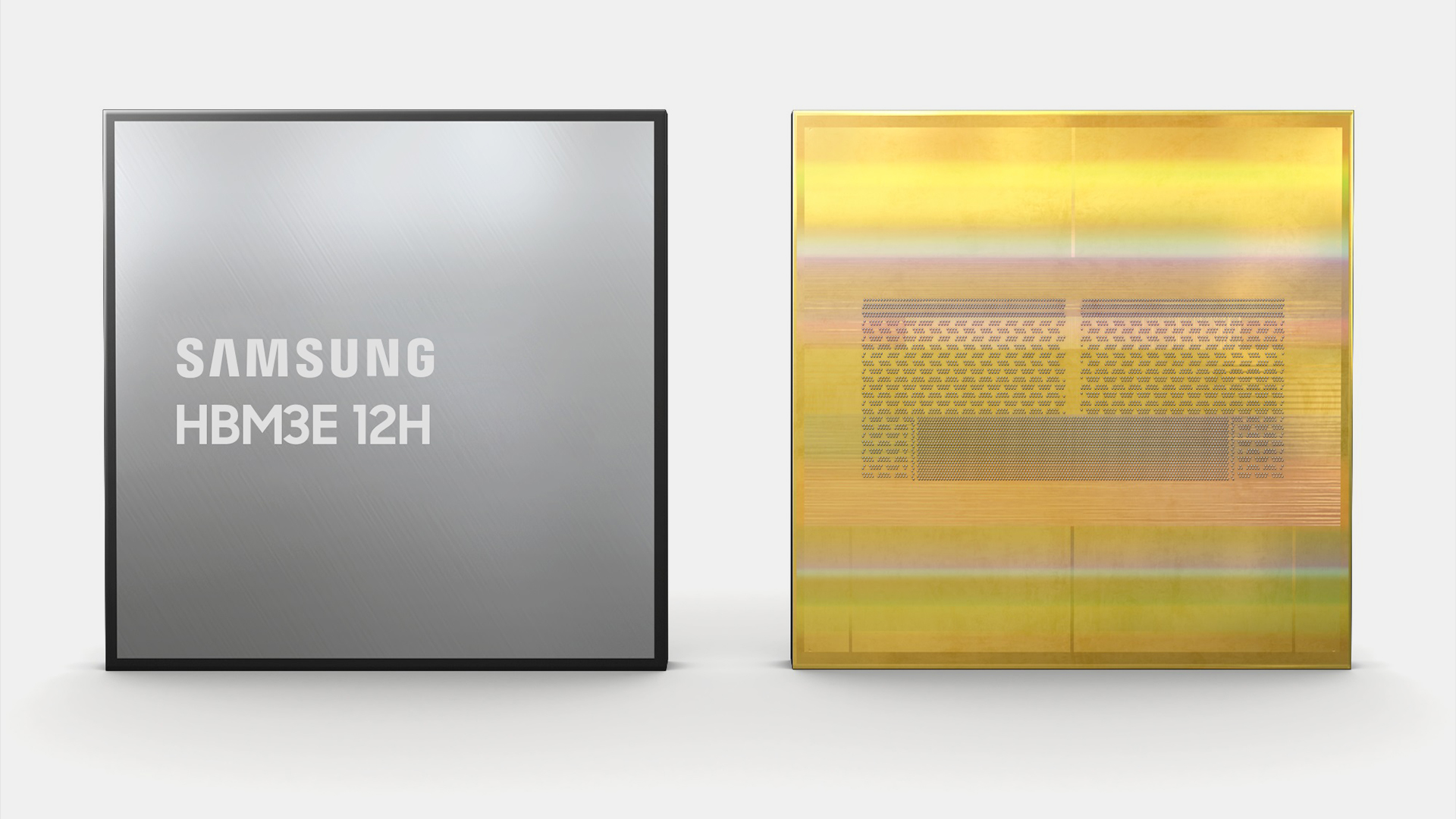Samsung denies report citing HBM quality issues, asserts its HBM memory works just fine
It works fine with 'various global partners.'

Samsung has denied a media report claiming that its high-bandwidth memory (HBM) products failed Nvidia's quality tests due to issues such as excessive heat and power consumption. Samsung stated that it is testing HBM supply with its worldwide partners and emphasized ongoing cooperation to ensure quality and reliability, reports Business Korea.
"[We are] smoothly conducting tests for HBM supply with various global partners," Samsung said in a statement published by Business Korea. "We are making efforts to improve quality and enhance reliability for all our products. We are rigorously testing the quality and performance of our HBM products to provide the best solutions to our customers."
Samsung recently started mass production of its fifth-generation HBM product — HBM3E devices in 24GB (8-Hi) and 36GB (12-Hi) capacity. The company reaffirmed its commitment to quality, though some analysts doubt its ability to quickly regain market share from SK hynix, according to Business Korea.
Now, while Samsung says that its latest HBM products — we presume that we are talking about HBM3E products — work fine with a wide range of processors, the company does not specifically deny whether they work just fine with all of Nvidia's processors. The details here are crucially important and the lack of them led us to speculate.
Although HBM memory is standardized by JEDEC and complies with all the requirements, solutions featuring HBM DRAM are highly custom solutions. Nvidia has multiple GPUs that work with HBM3E memory, including the Hopper architecture-based H200 as well as the Blackwell architecture-based B200, B100, and GB200. While all of them can use essentially the same HBM3E stacks, they may work with them differently and therefore have different requirements for their power consumption and heat dissipation.
For example, Grace Blackwell GB200 uses the Blackwell B200 GPU with enhanced performance compared to 'ordinary' B200 Blackwell processors. As a result, Nvidia's Grace Blackwell platform has different requirements for memory power consumption and heat dissipation. In this case, Samsung's HBM3E memory may well suit H200, B200, and, say, AMD's upcoming Instinct MI350X (which is a rumored product, of course), but may not meet the requirements of Nvidia's GB200. Then again, we are tending to speculate here and we must remember that Samsung's HBM memory is claimed to work just fine with all of Nvidia's processors, despite the earlier media commentary.
Get Tom's Hardware's best news and in-depth reviews, straight to your inbox.

Anton Shilov is a contributing writer at Tom’s Hardware. Over the past couple of decades, he has covered everything from CPUs and GPUs to supercomputers and from modern process technologies and latest fab tools to high-tech industry trends.